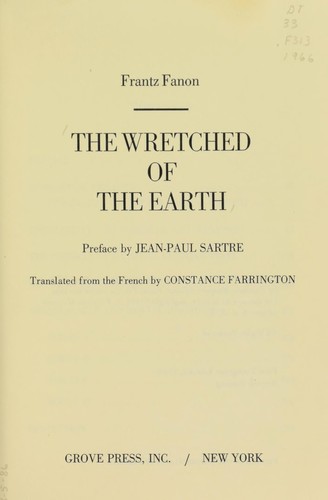


He also participated in editing its French-language publication El Moudjahid, where his own work appeared. Fanon formally joined the Algerian National Liberation Front (FLN) in exile in Tunis and represented the movement on the international stage. After qualifying as a psychiatrist in Lyon in 1951, he ended up in French Algeria and practiced at the Blida-Joinville psychiatric hospital until he was deported in 1957 for his political sympathies toward the Algerian national struggle. Born in Martinique under French colonial rule, Fanon joined the anti-Vichy Free French Forces in World War II and served in North Africa and France. Right now, you can subscribe to the print edition of Catalyst for just $20.įrantz Fanon (1925–61) is one of the twentieth century’s most significant anti-colonial intellectuals. This entry was posted in Uncategorized on Februby kwilson2.This article is reprinted from Catalyst: A Journal of Theory and Strategy, a publication from the Jacobin Foundation. The power of this resistance is proven in the fact that the film was banned for five years within France, showing that this type of storytelling is dangerous to those who wish to maintain colonialism. By using film to show the Algerian perspective and by formatting the film almost like a historical documentary, the filmmakers were resisting the history created by the French throughout the period of Algerian colonization. The Algerian perspective of this film counteracts this type of epistemic violence, which degrades the historical perspective and autonomy of Algeria in much the same way that colonialism degraded the revolutionaries within the film. The history he writes is therefore not the history of the country he is despoiling, but the history of his own nation’s looting, raping, and starving to death. And because he constantly refers to the history of his metropolis, he plainly indicates that here he is the extension of this metropolis. The colonist makes history and he knows it. Yet the creation of the film itself shows a resistance to a different type of violence. In the film the Algerians regain their autonomy through acts of resistance and violence contrary to their expected positions as passive colonized subjects. This idea is reflected in the film The Battle of Algiers, both through the acts of violence in the film and in the creation of the film itself. In the first chapter of his book The Wretched of the Earth, “On Violence,” Franz Fanon describes the ways in which the violence of the colonizer, in its many forms, must be counteracted by violence on the part of the colonized to contradict the structures of the metropole.


 0 kommentar(er)
0 kommentar(er)
